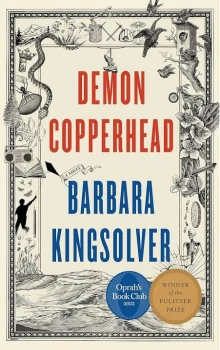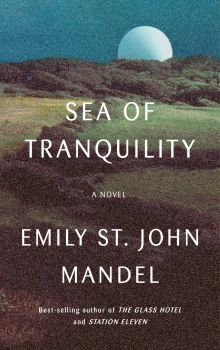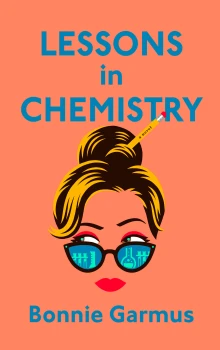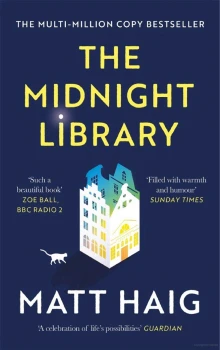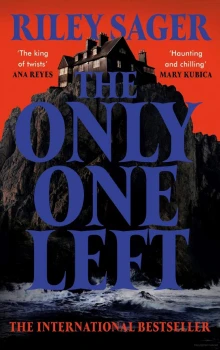By the time the Duchess leaves, the rain has slowed to a drizzle. As the afternoon begins to fade, Margaret snaps a lid onto the last cap. It is Wednesday. Tomorrow will be three years since she left home.
Enough, she says, softly, and though Bird can hear it, it’s clear she’s speaking to herself. As if she’s telling herself to let go. Giving herself permission to stop, or to move on, neither of them will ever be quite sure which.
With one hand she sweeps the pile of bottle caps from the table and into a plastic bag. Then she hesitates.
Do you want to come with me, she asks. Just this one last time.
For almost four weeks she’s been making and planting them, over a hundred a day, in plain sight. No one paid any attention to the old women who wandered the streets, gathering bottles and cans to sell; if anything, people edged back or turned away, embarrassed or disgusted or both. She’d seen them for years: of all things the Crisis had not changed, of all things that had survived, somehow these women were one of them. Dogged, unproud, patiently sifting the trash for what could be salvaged—and many of them, even before the Crisis, Asian. Their faces reminded her of her grandmother’s, her mother’s, her own, and she thought of them each time she pulled her straw hat lower over her eyes and shuffled down the sidewalk, bending over garbage bins or at the roots of trees. Dressed like one of them, she could go anywhere, if she was careful.
Still, there were close calls. Sometimes the police came: she never saw those who’d called, only looked up to see them peeking from behind the curtains as the patrol car pulled up beside her. When the officer approached, she would tuck a twenty into his back pocket, but once that wasn’t enough. He’d clutched her elbow with tight fingers, his breath hot on the side of her neck, until she followed him into an alley and undid his zipper, slipped her hand beneath his waistband. As he writhed and groaned, she’d fixed her gaze on the badge on his chest until he’d arched backward and scrabbled at her hair and let out one last strangled yelp, and at last she was free to go on her way. When she’d straightened herself and emerged back onto the street, the patrol car was pulling away, and in the windows above she saw the lights on, the people behind it going about their delicate lives, the ragged woman below already forgotten.
Today, she must be extra careful. With Bird in tow, she can’t afford a mistake. They will be quick. The last few places she hasn’t been.
Stay a few steps behind and pretend you don’t know me, she says, pulling on her hat. And wear your sunglasses.
They emerge from the subway at West Seventy-Second Street: the territory of wealthy women with rhinestoned phone cases, of small white dogs on taut leashes. Everywhere the sidewalks are a damp silvery gray, the car windows streaked with rain. On the corners, the bodegas still have umbrellas hooked over their door handles, ready for sale.
Margaret slips the first of the bottle caps from the bag on her wrist, palms it in one curled fist. After a few minutes of searching, they find a spot: a trash can, half overflowing. Crushed beer cans and plastic wrappers spilling onto the wet pavement.
Stand there, Margaret murmurs. Behind the screen of Bird’s body, she stoops as if to rummage in the bin, then sticks the bottle cap under the can’s lip, against a handy wad of gum. There, she says. That ought to hold it.
Bird takes a step back from the trash can and eyes it warily. To anyone else it would still look innocuous and ordinary; your eyes would glide right past it. Just another of the city’s uglinesses you’d do your best to ignore. But to him, now, the place is marked—with menace or promise, he isn’t sure which—and he can’t seem to turn away.
What will it do, he asks, though Margaret can see what he’s already imagining: flash, flames, a mushroom of smoke. She doesn’t answer. Already she’s pulled the next cap from her pocket.
Come on, she says. We’ve got to hustle.
For weeks Margaret has done this daily, and her eyes zero in on likely spots: wedged into a sewer grate, buried in a finger-wide crack in a building’s foundation. She pokes one cap neatly into the belly of a squirrel half crushed by a truck.
I don’t know, she says, wiping blood from her fingertips as she rises from the curb. They might come sweep it away.
She surveys the purpling mash of fur and flesh, the crust of flies beginning to gather.
But probably not, she says. I don’t think they’ll bother. Not by tomorrow, anyway.
They tuck them everywhere, these little capsules, and soon Bird begins to help, eyes adjusting to see hiding places everywhere, the way your sight adjusts to the dark. Some of the spots Margaret dismisses as too obvious, too neat. Somewhere messy, she says. Somewhere no one will want to touch. Bird runs a half step ahead, then two, then three, finding places for them all. Inside dumpsters reeking sweetly of rotting fruit; in corners where homeless men took their morning piss. At the feet of trees, nestled between bullets of dog shit. He forgets to question, for a moment, what they are for. It is a reverse treasure hunt, a game he and his mother are playing. Bottle cap by bottle cap, the bag on Margaret’s arm lightens, and Bird feels a swirl of glee at the clever places they’ve found, a sense of power and awe when he thinks how many of these caps are hiding out there. He calculates: a hundred a day, for a whole month.
Is that all of them? Bird asks, when she’s placed the last one. In a rusted crevice in a lamppost, just outside the entrance to the park.
That’s everything, Margaret says shortly, and lets out a sigh—of satisfaction? Of sadness? It isn’t clear.
With the last bottle cap planted, she abandons the trash bag she’s carried as camouflage all these weeks, adding it to a nearby heap. It is garbage day in this neighborhood and everywhere lopsided piles dot the curb, threatening to tip. Here and there, something has gnawed through the plastic, spilling a plume of trash across the sidewalk. She wipes her hands on the thighs of her pants, looks at him. Her Bird: wide-eyed and impressionable, trusting, eager for the future though he has no idea what it will hold. Half grown, but only half.
What can she teach him, what can she do for him, what can she give him to make up for what’s been lost? She wants to buy him pretzels and ice cream and lemonade from a cart, to let him dance through the park, licking the salt and drips from his fingers. To watch him play silly games, rules changing as he goes: leapfrogging broken squares on the sidewalk, jumping high to slap stop signs as they pass. No: she wants to play those games with him. She wants to be just his mother for one day. As if she can correct all these years without her, with one golden afternoon.
A police car approaches slowly, on the prowl. The silhouettes of the officers inside: foggy blurs through the tinted glass.
In an instant Margaret catches Bird by the elbow, yanking him behind a nearby stoop. Crouched behind a pyramid of garbage bags, her arms cinch him tight, so close they can feel each other’s hearts beating.
The car glides closer, suspicious. Scans the area. Then moves on.
Something thick and bitter coats the roof of Margaret’s mouth. In her grip, Bird’s shoulders are still a boy’s: unmuscled and bony, terrifyingly breakable. She can’t give him the beautiful afternoon he deserves, not yet. It isn’t fair, she thinks. The reek of the garbage rises around them in a fug, curdled and clinging. The police car is long gone, but still she cradles him, eyes shut, face pressed into the impossible warmth of his hair. When she finally loosens her arms and looks down at him, his gaze is startled, but trusting. Searching her face for a cue.
It’s okay, she whispers. Don’t be scared.
I’m not scared, he says. I knew we’d be okay.
With a shaky smile Margaret gives him a final squeeze, rises to her feet.
Let’s get home, she says.
They ride the subway back to Brooklyn, Bird at one end of the car, Margaret at the other, so no one will suspect they’re together. From afar she studies him: a small fidgety dark-haired figure, crossing one leg over the other, picking at the tape-mended tears in the seat. Behind his sunglasses she can’t quite see his eyes, but when she looks closely she spots his furtive glances in her direction, the nearly imperceptible relaxing of his shoulders each time he finds her, leaning against a pole, keeping surreptitious watch from afar. This is the past three years, she thinks, condensed into an instant: orbiting at a distance, guessing but never sure what he is seeing, hoping that the idea of her is reassuring. No, she corrects herself. Not the past three years. This is simply having a child.
Planting the bottle caps, returning home—usually this is a well-rehearsed dance she can do without flinching. But today is different. Today she cannot stay still; every time the train stops, she jumps, warily scanning the other passengers as they doze or idly scroll on their phones. Her gaze darts again and again to the boy at the end of the car, now settled calmly, breaking from his daydream only to catch her eye once and give her the faintest conspiratorial smile. She tries and fails to smile back. Another train rushes by, headed elsewhere, and in the blurred shapes through the window she remembers the shadows of the officers in their cruiser, Bird’s face against her shoulder, Bird’s body thin and warm and vulnerable even in the cage of her arms. She hates herself for putting him there. When she holds her breath she can still smell the garbage, sour and suffocating all around. The train pulses beneath them, palpitating, the thumps of the wheels and roar of the engine and the sway of the car coalescing into a single word that throbs faster and faster inside her. By the time they reach the brownstone—walking a ways apart, slipping one at a time through the gate into the back garden—it churns in the base of her throat, and the moment they are safely back inside, it erupts out of her, leaving her breathless.
No, she says. No. I’m not doing it.
Bird turns back to look at her, frozen with her back against the door, as if barring the way out. For a moment she looks older, drawn; in the darkened hallway, lit only by the single bare bulb in the living room, her hair silvers, her face turns gray. A woman turned to stone.
It’s not worth the risk, she says. In her own ears her voice is leathery, coarse and cracked.
But the bottle caps, Bird says. All the ones we just hid. And those ones you already hid.
It doesn’t matter. We’ll leave them.
But it’s important. Bird shakes his head, as if she is trying to fool him. Isn’t it? Whatever you’re doing, I know it’s going to help.
It doesn’t matter, Margaret says again. Forget it. Forget the whole thing,
She rushes to him, clutching him close, cradling his face in her palms, because it is unbearable to remember him in danger, to imagine him ever being in danger again, let alone putting him there herself. Whatever it takes, she and Ethan had promised each other all those years ago, and she still means it. She will do whatever it takes to keep their child safe.
Except. In her arms, Bird stiffens, then pulls away.
But—he says.
His brow furrows, a look she knows because she’s felt it on her own face her whole life: trying to unknot what people do and what they say and what they mean. She’d inherited it from her mother, who had probably inherited it from her mother, and here it was on her child’s face, too, staring back at her. An unintended legacy.
Birdie, she says. You’re all that matters. I don’t want to do it anymore. I just don’t want to take any chances.
But you said—he begins, then stops again, and she hears everything he isn’t saying aloud. But all those kids. Like Sadie. And their families. Isn’t that why you left?
We’ll find another way to help, she says. Something else. I don’t know what. But something less risky.
Her mind is full of hazy, incoherent plans.
We’ll figure something out, she says. Some way to stay together, somewhere to hide. Maybe Daddy can find a way to join us. Domi could help. Wouldn’t that be wonderful? Bird.
She is babbling now; she can hear it. She grabs at his hands with both of hers, as if he is sinking, or she is, and this might keep them afloat. They are still jammed together in the hallway, the tiny space thick and hot with their breath, still speaking in whispers, but it feels to both of them as if they’re shouting. All she wants is to not let him go.
None of this matters anymore, she says.
But even as she says it, she can see his face hardening, small embers in his gaze. How, she reads in his eyes, can you look away now that you know?
So it doesn’t matter, he says, as long as it’s happening to somebody else.
And she knows: it is too late to convince him, because she has already told him the truth.
Bird, she says, but the sheer disappointment on his face crumbles her voice into sand.
You’re a hypocrite, he says.
He hesitates for only an instant, then plunges ahead anyway.
You’re a terrible mother.
Margaret flinches, but Bird seems to feel it, too, recoiling as if she’s struck him. In his face she sees a mirror of what must be happening on her own: nostrils tense and trembling, eye rims suddenly hot and red. With a sudden jerk, he pushes her away. Then he is running up the stairs, and she doesn’t follow. She feels as wrung out and emptied as if she has vomited and vomited until nothing is left inside.
In the dark, Bird falls into a stormy sleep.
He dreams a sharp and jagged tangle. Machines broken and rusted, gears inextricably meshed. Bottles of ink shattering in his hands, dying his fingers a watery blue. Someone has given him a building to hold up, and if he walks away it will collapse. He has caught a snake in a pillowcase, and he stands, bearing the writhing sack, nowhere safe to release it. In the last dream, just before he wakes, he is surrounded by other children, crammed so close he can feel their warmth, hear their breath, smell the sweat on their skin. But none of them speak to him or even look at him. Each time he reaches out they drift away soundlessly, a silent sea parting. Their eyes turning everywhere he is not: down at their dirty palms, over their shoulders, up at the clear and cloudless sky.
He wakes in a panic, burrows into the sleeping bag, tugs it up to his chin. Now he remembers: the bottle caps, the police cruiser, the argument. Everything his mother had told him over the past two days, all the reasons she’d had to leave, and how quickly she’d thrown all that aside. He thinks about the years without her, he and his father all alone, missing her. Once he’d have traded anything, everyone, to have her back.
He can’t see anything, not even a crack of light from the hall. He listens for his mother, but hears nothing. Even the noises from outside—though there must be some—are muffled and muted to nothing more than whispers and faint hums. Somewhere she must be here, but he doesn’t remember the way to her room, and in the unrelenting dark he isn’t even sure he can find his way out. It is as if no one is there at all.
The wail of a siren slices through the window plastic: rising, here, gone. The only sign of life in the world. With a finger he drills into the corner of the plastic, stretching it, until a pinprick hole spreads. He bends down, puts his eye to it.
Outside he expects only more blackness, but instead what he sees is a dizzying array of light. Lights glimmer from window after window in a glittering mosaic. A sea of lights. A tidal wave of lights. Washing down over him in sparkling droplets. Each of those lights is a person, washing dishes or working or reading, completely oblivious to his existence. The thought of so many people dazzles and terrifies him. All those people out there, millions of them, billions, and not one of them knows or cares about him. He claps his hand over the hole, but still he can feel the lights sizzling against his skin like a sunburn. Even curling up inside the sleeping bag, the covers pulled over his head, brings no relief.
Out of him pours a cry so long buried the sound of it is like an earthquake in his throat. A name he hasn’t uttered in years.
Mama, he cries, stumbling out of bed, and the darkness reaches up and tangles around his ankles, tugging him to the ground.
When he opens his eyes again he is curled up tight in a ball and a hand rests warm and heavy on the tender V between his shoulder blades. His mother.
Shh, she says, as he tries to turn over. It’s all right.
She is sitting on the floor beside him. A less-dark shape against the dark.
You know, I felt the same way, she says, the first night I spent on my own.
Her palm warm and soft on the nape of his neck. Smoothing the hairs that bristle there.
Why did you bring me here, he says at last.
I wanted—she begins, and stops.
How to finish? I wanted to make sure you were all right. I wanted to make sure you would be all right. I wanted to see who you were. I wanted to see who you had become. I wanted to see if you were still you. I wanted to see you.
I wanted you, she says simply, and this is the only explanation she can give, but it is what he needs to hear. She had wanted him. She still wanted him. She hadn’t left because she hadn’t cared.
The understanding seeps into him like a sedative. Limpening his muscles, scooping smooth the hard edges of his thoughts. He leans against her, trusting her to bear his weight. Letting her arms twine around him like a vine round a tree. Through the tiny hole he’s poked in the window covering, a thin strand of light pierces the black plastic, casting a single starry splotch on the wall.
She strokes his back, feels the nubs of his spine under the skin like a string of pearls. Gently she sets their hands together, finger to finger, palm to palm. Nearly as big as hers, his feet perhaps even bigger. Like a puppy, all paws, the rest of him still childlike but eagerly lolloping behind.
Birdie, she says, I’m just so afraid of losing you again.
He looks up at her with the fathomless trust of a sleepy child.
But you’ll come back, he says.
It is not a question, but a statement. A reassurance.
She nods.
I’ll come back, she agrees. I promise I’ll come back.
And she means it.
Okay, he murmurs. He isn’t sure if he is speaking to her, or to himself. About what is to come, or what happened long ago. All of it, he decides. Everything. It’s okay, he says again, and he knows, by the gentle tightening of her arms, that she has heard.
I’m here, she says, and Bird lets the darkness absorb him.
When Bird wakes again his mother is gone and it is morning. He is curled in the crib, legs folded nearly to chest, the sleeping bag left behind on the window seat, twisted like a shed skin. He has a dim memory of wanting to be small, of finding this safe place to hide. Of retreating. Draped over him is a blanket he doesn’t recognize, heavy and too small and oddly shaped, and then he realizes it is not a blanket but his mother’s coat.

